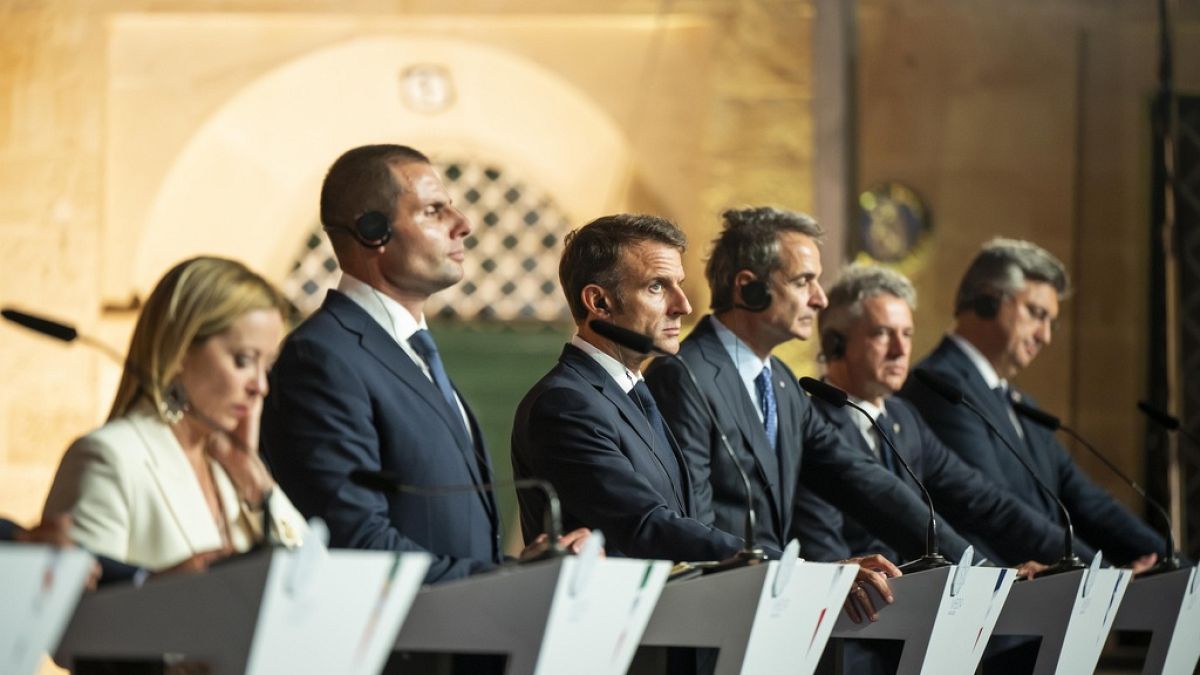A Libyan coast guard boat rammed into a small dingy carrying some 50 migrants near Libya's coast on Friday, a sea rescue group said.
Leaders of nine southern European countries called on Friday for the EU to finalise a new migration and asylum deal, and to beef up efforts to prevent departures from North Africa as another shipwreck drama unfolded off Libya's coast.
It said the European Union as a bloc must strengthen its response by beefing up surveillance operations of Europe’s external borders to prevent departures and break up human trafficking networks.
On Friday, the Libyan coast guard boat rammed into a small dingy carrying some 50 migrants near its coast, sinking the rubber vessel and throwing those onboard into the Mediterranean Sea, a sea rescue group said.
The one-day huddle included host Malta, as well as Croatia, Cyprus, France, Greece, Italy, Portugal, Slovenia and Spain.
At the end of the summit, Greek Prime Minister Kyriakos Mitsotakis said EU countries “need to determine on our own terms who enters” the 27-nation bloc.
“Currently it is the smugglers who decide who gets to enter the European Union and this must change.”
Mitsotakis said EU members should focus on repatriating people who are not entitled to asylum, while at the same time providing organised legal migration pathways.
Host Robert Abela, the Maltese prime minister, said the EU needed to speed up the time it takes to repatriate migrants whose asylum bids fail.
Currently, the lack of repatriation accords with countries of origin allows many migrants to simply fade away and head north in search of family and work.
“But ultimately the issue needs to be tackled at source. To help achieve that, we underline the need to urgently build more robust, comprehensive partnerships with all our partners in the southern Mediterranean,” Abela said.
